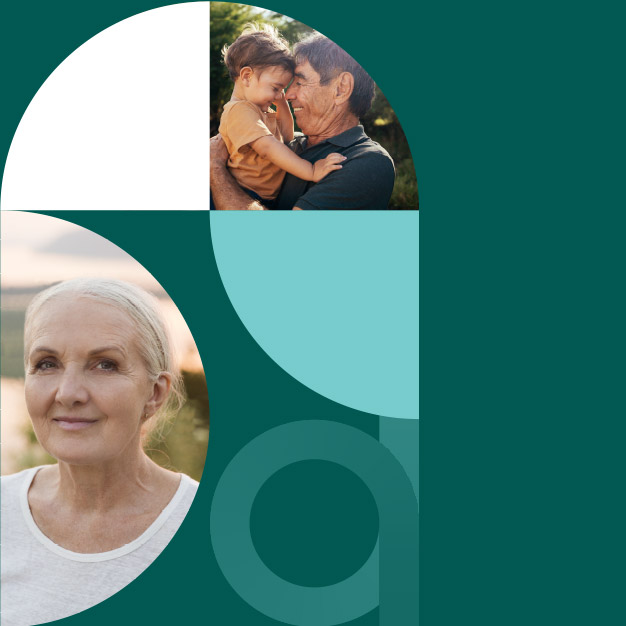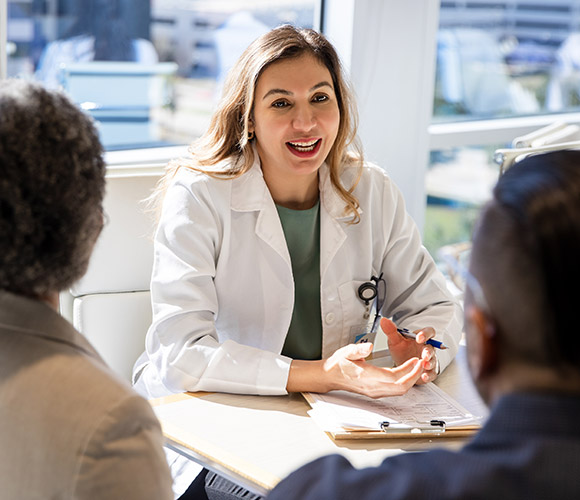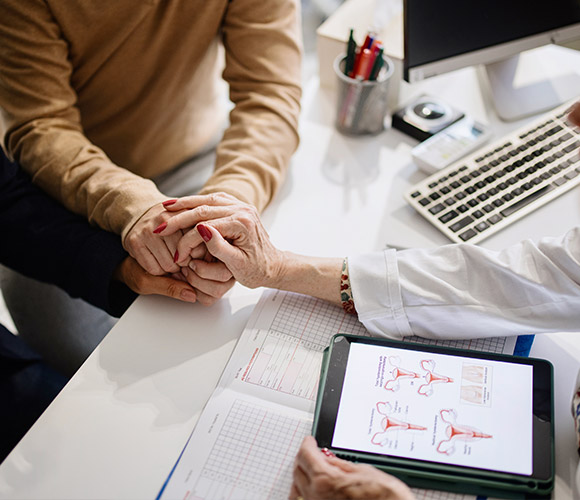Cancer is complicated, confusing and overwhelming.


A cancer diagnosis can be hard to process.
Cancer is complicated.
Oncologists have limited time.
Because of busy workloads, the average time an oncologist spends with a patient is only about 25 minutes during their initial consultation and even less time during follow-up visits. When you consider all the complexities of cancer, it’s no wonder patients are oftentimes left with more questions than answers.
Medical evidence can be hard to understand.


Medical treatments are often not tailored to personal goals and preferences.
Cancer treatment decisions are typically guided by clinical trial data, but these trials include only a small, select group of patients—often younger, healthier, and less diverse than the broader population. As a result, the evidence shaping standard treatment recommendations may not reflect the realities of most patients’ lives. Without information that accounts for their specific circumstances, many patients struggle to make choices that align with their personal goals, leading to unnecessary burdens on their quality of life.
Patients are not well informed about their prognosis.
Most cancer patients want information about their disease and prognosis, yet according to a recent study, only 18% of the patients who wanted to know their prognosis reported being told. Further, patients’ preferences for information about their disease can change over time, so one discussion at one time point will not suffice. When uninformed of their prognosis, patients can hold unrealistic expectations and elect to participate in futile treatment plans that ultimately lower their quality of life. On the other hand, patients who understand their prognosis are more likely to pursue more concordant treatment steps, and handle care planning in a timelier manner.
Cancer can cause financial distress.

That’s why there is Ardynn
Ardynn can help with guidance, education, and support throughout a patients’ journey. Our advocates can help give people with cancer a voice, providing them with the information they need to make more informed decisions, based on real world data. We can help bring much needed clarity, and lessen the load along the path, allowing our members to concentrate on healing.
We’re here to instill confidence in cancer patients as they navigate the uncertainty of cancer care.
